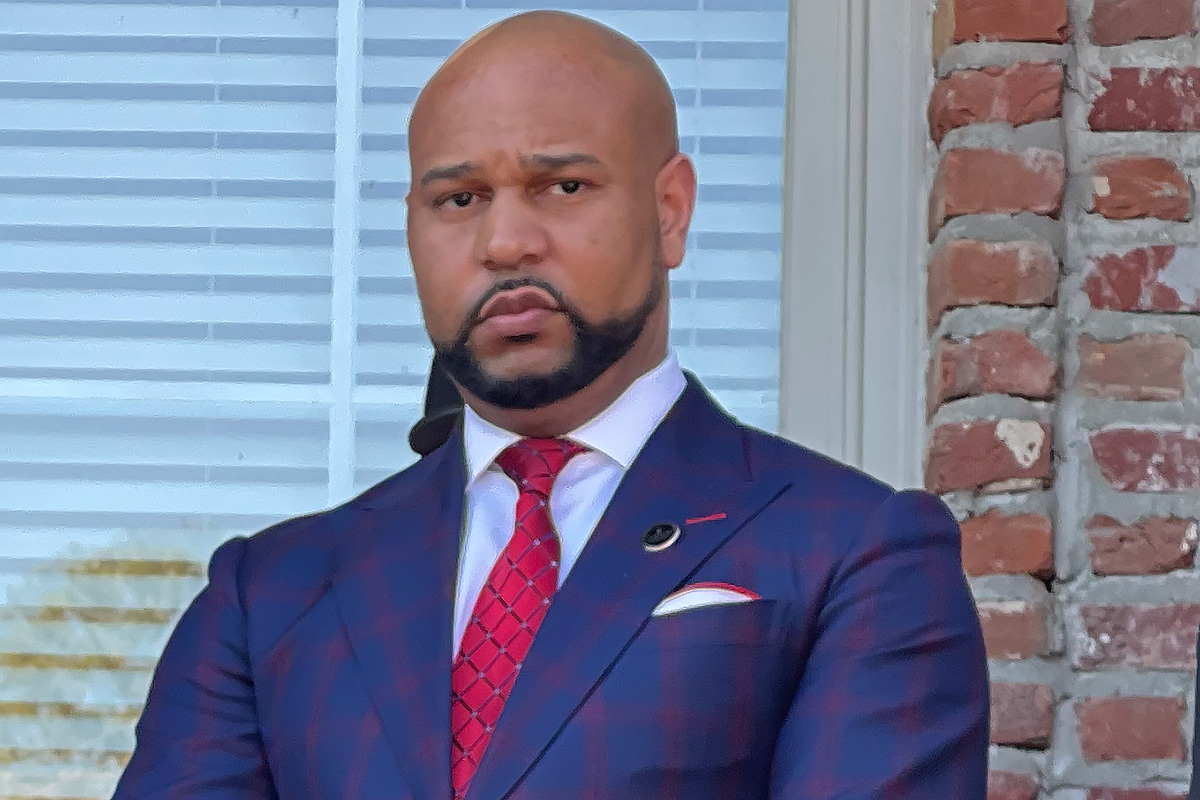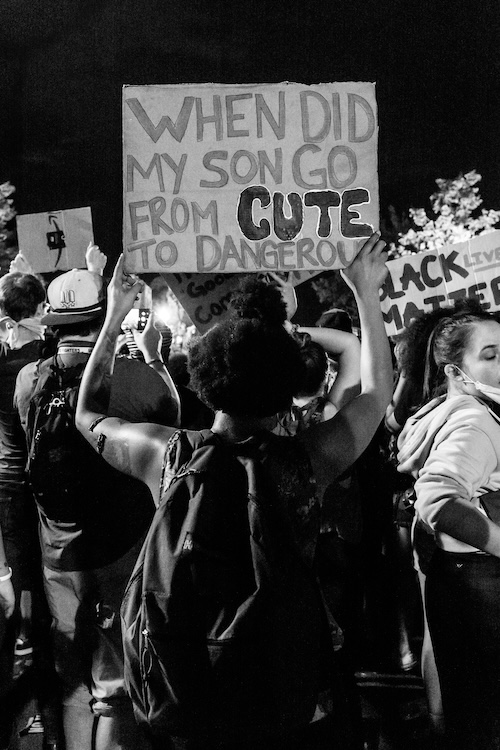SENATOBIA, Miss.—Quantavious Eason, a 10-year-old Mississippi boy in the third grade, faced an ordeal that starkly reminds us of the deep-rooted racial injustices in Mississippi’s history—a history marred by the tragic case of Emmett Till.
In 1955, white men brutally murdered Till, a 14-year-old African American boy, for allegedly offending a white woman, who later identified him. This heinous act became a catalyst for the Civil Rights Movement. Fast forward to 2023, and we find Eason, a young Black boy, being subjected to a criminal justice system that seems to have learned little from its past.
Eason was allegedly urinating outside next to his mom’s car on Aug. 10, 2023, when the police caught him while his mother was inside an attorney’s office in Senatobia, NBC News reported. The mother said her son decided to relieve himself outside because there were no signs of public restrooms in the parking lot. Then and there, a police officer drove by and saw Eason, so he stopped and met the mom inside. The officer seemed satisfied after the mom admonished Eason over the behavior.
However, just moments later, four additional police officers arrived at the scene, arrested the third grader, took him to the station and put him in a cell for about an hour while they completed the paperwork. Eason was then charged in youth court and sentenced to three months of probation, which included writing a two-page essay on late basketball legend Kobe Bryant.
Chief: ‘An Error in Judgment’
Suffice it to say that Eason has suffered enough—I believe this 10-year-old’s ordeal was racially motivated and unreasonable. “He did what any reasonable person would do: He urinated next to the car behind the door—not exposing himself to anyone,” Quantavious’ attorney Carlos Moore stated. “He would not have been arrested, prosecuted or sentenced if he was any other color or race besides Black.”
Eason’s arrest, detention, prosecution and sentencing reek of racial injustice that is deeply ingrained in American society in general, specifically in its juvenile justice system. Otherwise, how can a 10-year-old schoolboy be arrested, detained, prosecuted and sentenced for simply relieving himself where there were no visible signs of public restrooms—something millions of other Americans would probably do given the same circumstances?
The question of race and socio-economic factors cannot be ruled out in the analysis of this case. Research consistently shows that the American juvenile justice system disproportionately affects minorities and economically disadvantaged children.

Eason’s ordeal was unreasonable. He was not only arrested, detained, charged with “child in need of supervision” and sentenced, but his sentence included something as ridiculous as writing a two-page essay on late basketball player Kobe Bryant. More so, Tate County Youth Court Judge Rusty Harlow handed out the sentence on December 12.
Attorney Moore aptly captures the level of stupidity surrounding the circumstances of the case. “I thought any sensible judge would dismiss the charge completely. It’s just asinine,” Moore stated. “There were failures in the criminal justice system all the way around.”
Even the first police officer who saw Eason relieving himself outside and Senatobia Police Chief Richard Chandler knew that the little boy had done nothing wrong—at least not as serious as the other four officers made it seem. He should not have been arrested in the first place, let alone prosecuted and sentenced.
“Under these circumstances, it was an error in judgment for us to transport the child to the police station since the mother was present at that time as a reasonable alternative,” Chandler stated.
An Overzealous Application of Justice
Some people might argue that Eason’s alleged public urination breached the law. According to the Mississippi law on indecent exposure, “A person who willfully and lewdly exposes his person, or private parts thereof, in any public place, or in any place where others are present, or procures another to expose himself so, is guilty of a misdemeanor and, on conviction for a first offense, shall be punished by a fine not exceeding Five Hundred Dollars ($ 500.00) or be imprisoned not exceeding six (6) months, or both.”
However, it remains to be seen if a child his age should be subjected to such an ordeal for simply relieving himself outside, especially if he were white. And did the officers violence the Fourth Amendment of the U.S. Constitution, which protects against “unreasonable searches and seizures.”
Public urination is undoubtedly a violation of social norms. However, the severity of the response to a 10-year-old’s act of relieving himself in public should be proportional and reflective of the child’s age and understanding.

Children, by nature, are prone to impulsive behavior and lapses in judgment. Rather than resorting to punitive measures like probation, our legal system should prioritize educational and rehabilitative approaches for juvenile offenders, such as counseling or community service. The primary objective in dealing with juvenile cases should be to correct behavior and guide children toward more appropriate actions. While acknowledging the need for accountability, it is essential to question whether probation effectively achieves this goal for a child of such a tender age.
Otherwise, all those involved in this shameful act should be made to face the full wrath of the law to serve as a deterrent to others, and assuage Eason and his family for enduring “enough” suffering under the present circumstances.
The severity of the response to a 10-year-old’s actions should reflect his age and understanding. Mississippi, a state with a history of racial injustice, must confront its past and reform its present. This incident should not just be a wake-up call, but a turning point. All those involved in this overzealous application of justice should face consequences, not only to provide justice for Eason but to ensure that Mississippi does not repeat the mistakes of its past.
The state, and indeed the country, must move toward a future where the justice system is equitable and compassionate, especially towards children. Eason and his family have suffered enough. It’s time for a change.
This MFP Voices essay does not necessarily represent the views of the Mississippi Free Press, its staff or board members. To submit an opinion for the MFP Voices section, send up to 1,200 words and sources fact-checking the included information to azia@mississippifreepress.org. We welcome a wide variety of viewpoints.






